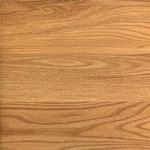Serving Upstate NY—VT—MA • For selections & prices, CALL or EMAIL US
American Elm
Wood Flooring Species
Scientific Name:
Ulmus americana
Other Names and Species:
Florida Elm
Soft Elm
Swamp Elm
Water Elm
White Elm
Origin:
United States and Canada
Appearance:
The sapwood of American elm is gray-white to light brown. The heartwood has a reddish-tinged light brown to pale brown color. Elm has a coarse, wooly texture, with the grain ranging from straight to slightly interlocked. The luster of this wood is comparable to ash.
Properties:
American elm requires some care in drying to ensure no warping or ring failure occurs. Once dried, elm flooring has moderate dimensional stability. Elm is reported to have no distinctive odor. The material is susceptible to decay, so properly sealing the product when installing is very important.
Janka Hardness: 830
Elm is a softer wood flooring choice. It is neaerly identical in hardness to leopardwood or lacewood, about fifty-four percent harder than chestnut, roughly forty-nine percent as hard as merbau, about fifty-seven percent as hard as hard maple, close to fifty-one percent that of wenge, and just under thirty-eight percent as hard as santos mahogany’s ranking of 2200.
Workability:
This wood is not overly difficult to work with tools, causing only moderate blunting of cutting edges. It finishes to a smooth surface. This species can easily be installed with glue or nails.
Principal Uses:
Besides being used in wood flooring, elm can be found used for interior trim, wainscotting, decorative veneers, and moldings.





